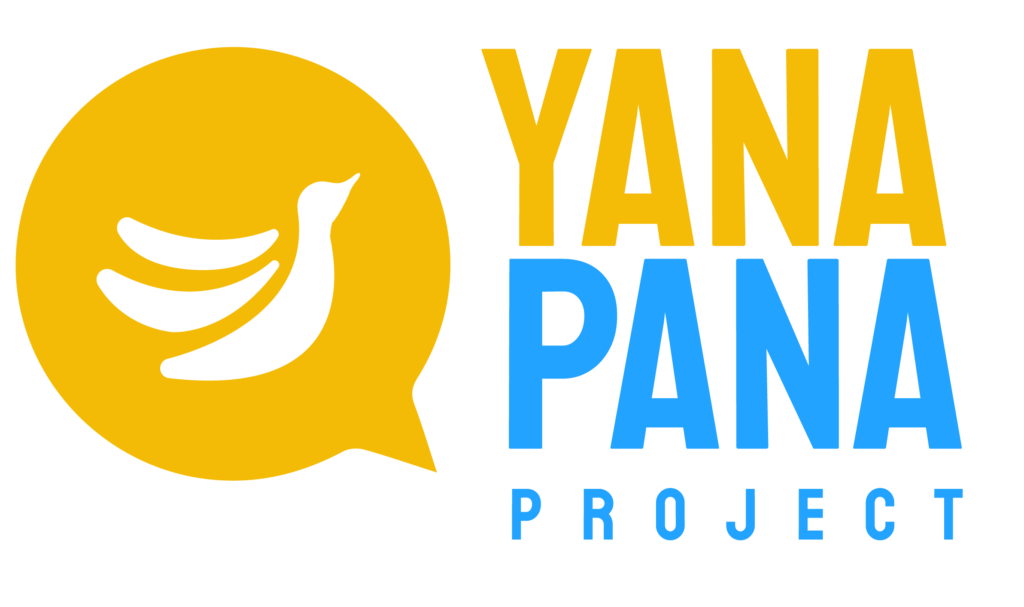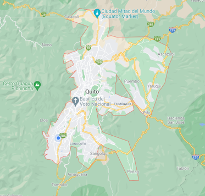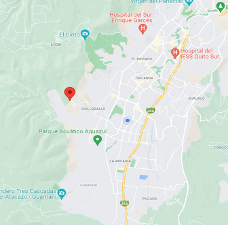Pamela Salome Chavez Calapaqui

Where is this grassroots initiative implemented? Who are the promoters? Who are the beneficiaries?
This grassroots initiative is being implemented in the city of Quito, Ecuador. The main neighborhoods that Yanapana is working with are in the Chillogallo parish. This is in the peri-urban area, where the houses are constructed on the hillside (which means they are located in a zone prone to risk). Their population doesn’t have full access to basic services and equipment. These neighborhoods are: La Dolores and Cumbres del Sur.



Yanapana´s promoters are four young people who launched this initiative in July 2020. They work together with 60 volunteers approximately, plus the allies that support the cause with donations. One of its allies, the De Base organization, works in the field closely with these neighborhoods. Other allies that Yanapana works with are the civil organization Love is Giving and the AMS club Ecuadorian Students Association (ESA) of the University of British Columbia.
The beneficiaries are the families who live in La Dolores and Cumbres del Sur. Currently, Yanapana is working in a tailored plan with only 2 families of these neighborhoods.
The Name Yanapana comes from the Ecuadorian language kichwa, and means “to help a friend”. Yana means help and pana means friend.
How does this initiative engage with climate? Does it tackle mitigation, adaptation, both or other dimensions of climate change?
Yanapana’s aim to construct urban orchards in the neighborhoods of La Dolores and Cumbres del Sur constitutesa mitigation practice against climate change, as well as an adaptation practice.
It is a mitigation practice in the sense that the implementation of urban orchards will permit the reduction of greenhouse gases emission through different methods. The harvest of organic products obtained from the community orchard will reduce the consumption habits of inhabitants and therefore the amount of plastic they use. There will also be a significant reduction in the commute distances to supply themselves with food. In addition, urban orchards help reduce the accumulation of C02 and heat in cities, allowing to alleviate the consequences of heat islands. Moreover, urban orchards promote the production of compost from organic household waste, which also helps in the reduction of greenhouse gases.
Yanapana also embraces adaptation practices in order to tackle climate change. It seeks to adapt human behaviour through the change in consumption and feeding practices. This grassroots movement tries to offer people the opportunity and the resources to empower themselves and change the consumer dynamics of the modern world. By adjusting their ways of food production and consumption, this organization is opening the possibility for other neighborhoods to adapt these practices to their daily lives.
What are the main objectives? What are the main values?
Yanapana originates from values of love and solidarity with the purpose of providing the foundational nourishment for the body and mind of children. Its main values are solidarity, honesty, cooperation, responsibility and service. Its mission is to tackle the malnutrition problem within vulnerable groups of Ecuador through education, solidarity, and international cooperation; so that every person gets the opportunity to nurture their body, mind and spirit.
The main objective of this initiative is to combat malnutrition in vulnerable groups living in poverty. Yanapana’s target group are families with children under the age of five, as well as families with pregnant women or in lactation period. However, their work is not limited to these groups. The organization delivers food baskets to the beneficiary families and works closely with them to empower their abilities and improve their living conditions and feeding habits in a sustainable and self-sustaining way.
The organization provides the necessary tools and resources for the urban gardens to be built, including educating the population with workshops and specialised training in urban agriculture. To make this possible, the initiative is planning to make alliances with organizations like Agrupar- Conquito andthe Guardianes de las Semillas.
Once the urban orchards are built, families will be taught about healthy nutrition habits based on nutritional plans that will include the orchards’ products. This movement also aspires to involve children and adolescents in the urban orchards activities, with the purpose of letting them explore agriculture as in a farm school. Finally, the long term purpose is to generate micro-enterprises (owned and managed by the families) from the harvested products.
What is the timeline? Are there already visible effects?
Yanapana was born on the 26th of July 2020. This grassroots movement was created in the context of the COVID-19 pandemic. After one year and a month of operation, it has achieved important steps towards its final objective. In this period of time, alliances were established with the organization De Base and the civil group Love is Giving. During this time, food baskets have been delivered to the most vulnerable families.
Together with the movement De Base, Yanapana is working on the first communitary orchard in La Dolores neighborhood. The first sowing was the 10th of October 2021. In the long term, Yanapana is looking to construct a second urban orchard in Cumbres del Sur neighborhood. In addition, in one or two years, Yanapana aspires to develop micro-enterprises owned by the beneficiary families.
Who are the actors involved? What is their background?
The founders have just graduated from university in the midst of the pandemic. Amid all the chaos, they saw an opportunity to use the resources everyone had available as recent graduates to create positive change in their community.Then, as a group, they came up with this project.
Which limits (institutional, physical, social, etc.) does it encounter?
The movement’s principal limits have been economical. Because this grassroot movement began almost one year ago, it has been really difficult for their founders to obtain the necessary monetary funds for the construction of urban gardens. At the beginning, it was also difficult to capture visibility, that is, to be known by other movements or organizations with more experience and extensive contact networks in the city and the country. Yanapana has not yet achieved such visibility. However, it seeks to achieve greater recognition and therefore more opportunities to expand the project’s cause.
Are any shortcomings or critical points visible? What other problematic issues can arise from its implementation?
One of the main shortcomings faced by the initiative is the dependence it has on donations and alliances for the implementation of the initiative. This is a bit problematic since it does not have yet the capacity to self-finance its work, risking to lose part of their income in the process, and thus altering the continuation of the orchards project. Furthermore, another shortcoming is the fact that it is highly difficult to produce a permanent impact on people’s behaviour, which means that the work with beneficiaries should be comprehensive enough to inspire them in a new lifestyle.
How would it be potentially replicable in other settings?
Quito is a city with a great number of precarious neighborhoods situated in the peripheries. There are similar neighborhoods to La Dolores and Cumbres del Sur in the south and north of Quito that have enough space to manage the construction of urban orchards. Even next to La Dolores, there is another neighborhood with similar conditions, the 9 de Diciembre neighborhood. Therefore, the possibility to replicate this initiative is achievable.
Is this initiative conducive to broader changes (law, institutional arrangements, long-term sustainability or community preparedness, etc.)? If yes, which?
This initiative seeks to lead to broader changes. The project aspires to produce long term sustainability through the work made in close relationship with beneficiaries. This close relationship permits to provide the beneficiaries with the necessary tools for acquiring more sustainable feeding habits, less consumer practices and a greater desire to live in community. In general, the initiative plans to prepare the community to live in a more sustainable and self-sustaining way, in harmony with people and nature.






.
Links for knowing more about Yanapana Project:
Instagram:https://www.instagram.com/yanapana_project/
Facebook: https://www.facebook.com/YanapanaProject
Website:https://es.yanapanaproject.org/
References:
Interview with member of Yanapana Project Foundation
Google. s.f. Google Maps location of Quito. Retrieved October 15, 2021 from https://goo.gl/maps/JytRkixc3psZCMoB7
Google. s.f. Google Maps location of La Dolores and Cumbres del Sur neighborhoods. Retrieved October 15, 2021 from https://goo.gl/maps/GksmPqVEZegGz3RYA
Yanapana Project Foundation s.f. Retrieved October 15, 2021 from https://es.yanapanaproject.org/